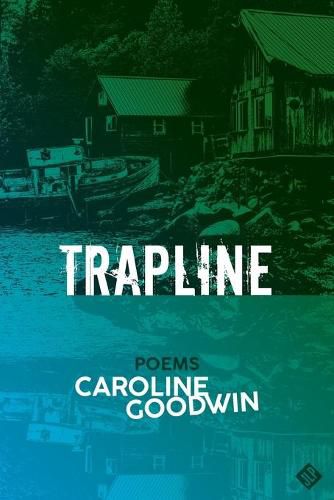Readings Newsletter
Become a Readings Member to make your shopping experience even easier.
Sign in or sign up for free!
You’re not far away from qualifying for FREE standard shipping within Australia
You’ve qualified for FREE standard shipping within Australia
The cart is loading…






This title is printed to order. This book may have been self-published. If so, we cannot guarantee the quality of the content. In the main most books will have gone through the editing process however some may not. We therefore suggest that you be aware of this before ordering this book. If in doubt check either the author or publisher’s details as we are unable to accept any returns unless they are faulty. Please contact us if you have any questions.
In Caroline Goodwin’s Trapline, nature’s flux and torque are embodied in a language that is taut, luscious, and musical. These are poems of rot and salt, dragonflies and kinked reeds, where the world is always with us - raw and omnipresent, beautiful and terrible. Here poems navigate physical and metaphysical landscapes, embodying experience and a world both awful and awe-full: ‘when the mind / has grown plumes delicate / as tubeworms in the driftwood / in the sponge and scarlet / blood star tough as tongues / as the sea whip clicking.’ Even when examining minutiae, Goodwin’s poems retain the largeness of the world they articulate. And like the world, they both describe and inhabit us. This is wonderful, searing, necessary work; we read it and we pause and we see ourselves differently. – Donna de la Perriere
Alaska native Caroline Goodwin’s first poetry book, Trapline (Jackleg Press), is set at the edge-of the sea, the swamp, the wilderness. To get a feel for her poetry, imagine yourself walking along the shore, encountering rot and salt, dragonflies, gnats, the quahog and cockle. Then imagine focusing in on each treasure, closer and closer until you see a wing or an eye and then inside the organism. Once you’re amongst the blood vessels with your magical microscope, Goodwin will connect what you see to the human you through a hand, a thigh, a boot. What you discover will be big and beautiful and brutal. The first poem offers an invitation to the reader: come to the end of the wharf / when the last of the tide releases / the harbor with its trollers / and rigging / / / its lampshells / and speckled anemone _ _ come / after work when the mind / / has grown plumes. You will want to take Goodwin up on this invitation. I fell in love with these poems. – Luanne Castle
$9.00 standard shipping within Australia
FREE standard shipping within Australia for orders over $100.00
Express & International shipping calculated at checkout
This title is printed to order. This book may have been self-published. If so, we cannot guarantee the quality of the content. In the main most books will have gone through the editing process however some may not. We therefore suggest that you be aware of this before ordering this book. If in doubt check either the author or publisher’s details as we are unable to accept any returns unless they are faulty. Please contact us if you have any questions.
In Caroline Goodwin’s Trapline, nature’s flux and torque are embodied in a language that is taut, luscious, and musical. These are poems of rot and salt, dragonflies and kinked reeds, where the world is always with us - raw and omnipresent, beautiful and terrible. Here poems navigate physical and metaphysical landscapes, embodying experience and a world both awful and awe-full: ‘when the mind / has grown plumes delicate / as tubeworms in the driftwood / in the sponge and scarlet / blood star tough as tongues / as the sea whip clicking.’ Even when examining minutiae, Goodwin’s poems retain the largeness of the world they articulate. And like the world, they both describe and inhabit us. This is wonderful, searing, necessary work; we read it and we pause and we see ourselves differently. – Donna de la Perriere
Alaska native Caroline Goodwin’s first poetry book, Trapline (Jackleg Press), is set at the edge-of the sea, the swamp, the wilderness. To get a feel for her poetry, imagine yourself walking along the shore, encountering rot and salt, dragonflies, gnats, the quahog and cockle. Then imagine focusing in on each treasure, closer and closer until you see a wing or an eye and then inside the organism. Once you’re amongst the blood vessels with your magical microscope, Goodwin will connect what you see to the human you through a hand, a thigh, a boot. What you discover will be big and beautiful and brutal. The first poem offers an invitation to the reader: come to the end of the wharf / when the last of the tide releases / the harbor with its trollers / and rigging / / / its lampshells / and speckled anemone _ _ come / after work when the mind / / has grown plumes. You will want to take Goodwin up on this invitation. I fell in love with these poems. – Luanne Castle